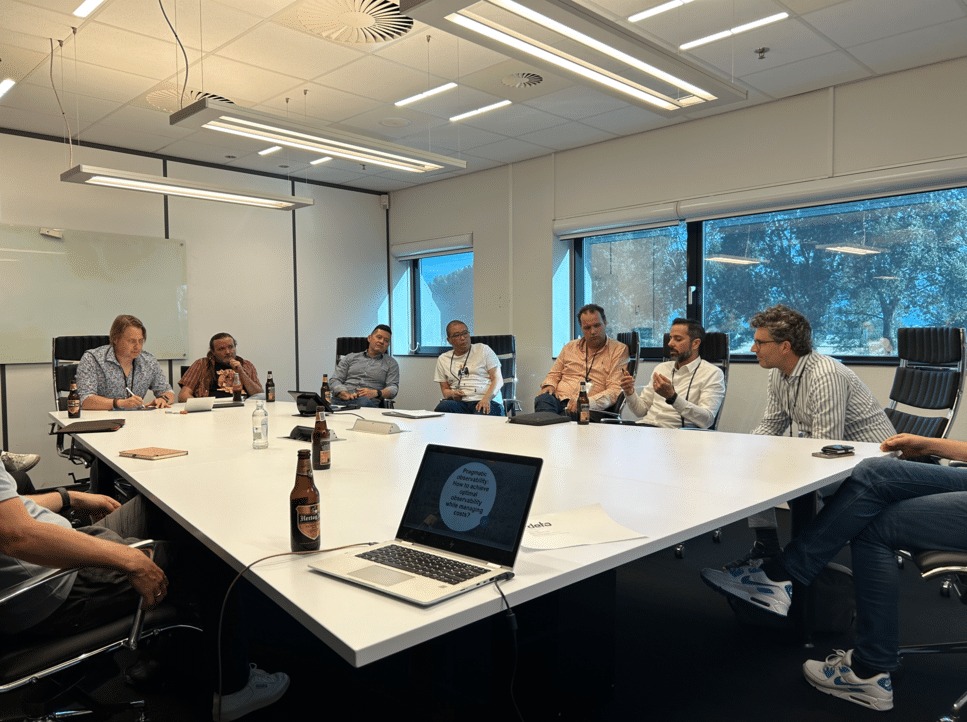In the latest instalment of our #WomenInTechQA series, we caught up with Ka Man Lok, Senior MuleSoft Consultant at Sapient i7 to talk about equality and diversity across the technology landscape.
Ka Man talks to us about the reasons she co-founded the diversity initiative, Codename: MAXINE, and how community groups like this will encourage more diversity in tech. She also discusses the positive changes she has recognised in terms of diversity and equality since her career in tech began, and offers her advice to those looking to take up a career in MuleSoft.
Third Republic (TR): As one of the Co-Founders of Codename: MAXINE, a community which encourages and supports women in tech. Could you explain a bit about the reasons the initiative was founded?
Ka Man Lok (KML): The creation of Codename: MAXINE is largely related to a realisation I had when I attended a tech conference. There were about 70 people in the room, and I could only see about 3 women, 4 including myself. I knew that women were underrepresented in tech, however seeing the vast difference in numbers really shocked me. As I started to get into tech a bit more and my career began taking off, I decided that something needed to be done about the numbers of women in the tech space – thus Codename: MAXINE was born.
The general initiative is really about having a community that welcomes all regardless of gender, ethnicity, background or experience. It’s a forum for like-minded people to build their technology skills and knowledge, as well as share across a range of topics from career insights to the latest developments in the integration space.
TR: Do you think that community groups will encourage more women to take up careers in the tech space?
KML: Without a doubt, yes. These kinds of community groups give people the opportunity to meet and network with people that they can learn from and even look up to. The idea is to provide everyone with a forum to share their experiences, which makes the whole profession and industry appear a lot more accessible, specifically for those who might be a minority. With more groups like Codename: MAXINE we can show people no matter who you are there are opportunities in the tech space suited to everyone. These kinds of groups provide women (or anyone really) with a platform to be curious about career options and how they can progress with a career in the tech space.
TR: Are there any initiatives at Sapient7 to encourage more women to get involved in tech?
KML: I wouldn’t say we have a specific initiative like Codename: MAXINE. However, for most businesses I think it’s all about culture. The entire business has to be open-minded and onboard with improving the numbers of women in tech. At Sapient7, we have a fantastic culture that really encourages diversity in all teams, not just tech. Our talent acquisition team really place culture at the heart of processes, which in itself massively contributes to our positive and diverse culture. We also host regular events for tech professionals, which gives us the platform to answer questions and offer insights on careers in tech. These events also really help to communicate our inclusive culture and help towards encouraging more women to get involved in tech.
TR: Since your career in tech began, have you seen any changes to the industry in terms of diversity and equality?
KML: Although I don’t have extensive experience in tech, I have definitely noticed there has been a big change to the diversity and equality across the industry. More companies are putting an emphasis on creating diverse teams and are embedding this into their business culture. I have definitely noticed businesses becoming more open-minded when it comes to hiring into their tech teams. Back when I was doing my masters, there were very few women in the industry but I’m definitely noticing a change to the amount of female representation in tech teams now. When the big companies publish their diversity data, you can definitely see that the journey to transformation is heading in the right direction.
TR: What do you think businesses can do to ensure that their tech teams are becoming more diverse?
KML: While it’s definitely important that there is more of a focus on diversity, it can be quite challenging for businesses. There can be a lot of controversy around hiring quotas and positive discrimination. Of course, we want to see more female or minority groups represented in tech teams, however, it should still be about hiring the right person for the job and for the company culture. It shouldn’t be about companies just making hires in order to fill their diversity quotas. At the end of the day, the most important factor is the culture of the company and their awareness of the need to improve and to encourage more women to get into careers in tech.
TR: What advice do you have for those looking to take up a career in the MuleSoft space?
KML: In general career decisions are very personal. Some people value salary, some culture, others work-life balance. What I would always say, is to do what do you enjoy what you’re passionate about. I suppose this is true of any career. Continual learning is essential for any career in tech because the environment is always changing, there’s new tech emerging all the time so it’s important that you’re someone who loves learning and expanding your knowledge. In order to be successful, you need to keep evolving and find yourself a company that you can grow together with and that will invest in the future of your tech career. Overall, it’s all about enjoying yourself and the space you’re working in.
TR: Could you explain some of the benefits you have found since becoming MuleSoft certified?
KML: Firstly, it’s a skill that’s in high demand. This means there’s plenty of jobs around to choose from and you definitely have a great sense of job security. There’s also lot of attention around the MuleSoft space, it’s growing, and new projects are always coming in. This makes it a really varied space to work in. One benefit of MuleSoft tech is the development. You don’t necessarily need to learn code from scratch as it takes away the code and includes configuration. It also helps you to understand about how integration works. A major benefit of MuleSoft is that you definitely don’t need to have a background in tech in order to become certified – it really is for anyone. I studied a science degree, and I didn’t find becoming certified too difficult. It would help to have a tech background or experience with Java etc. but really anyone can do it, if you have a passion for it.
TR: Finally, what changes do you predict for the future of tech teams? And what are you hoping to see?
I predict that the future of tech will continue to bring people together. It will allow people in all industries to work more efficiently and provide everyone with a better work-life balance. I believe the future of tech will allow more and more people to work remotely and will enhance performance. In tech teams I see diversity and equality improving as more and more people start to learn about the accessibility of tech careers.
If you’d like to be involved in our next Q&A, get in touch with us today!




